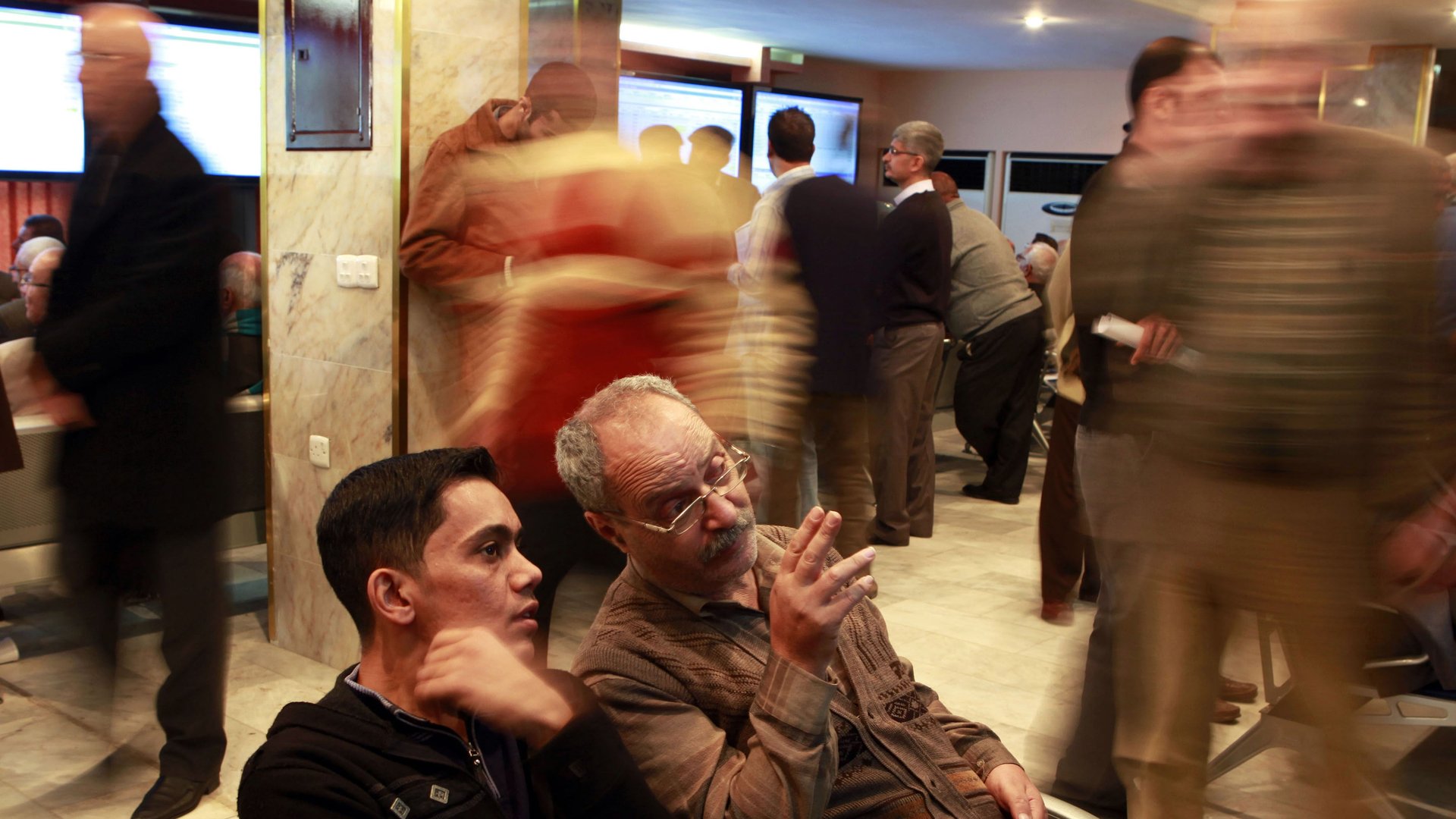The IPO that doubled the size of Iraq’s stock market in one day
Trading opened today on the Iraqi stock exchange on mobile-phone operator Asiacell, which raised 1.485 trillion Iraqi dinars ($1.3 billion) by putting a 25% stake up for public offering. That’s the biggest IPO in the Middle East since the Saudi Arabian Mining Co. went public more than four years ago. The shares popped in the first day of trading, rising by 10%—the maximum allowed in one day under exchange rules—before settling back to close about 6% up.


Trading opened today on the Iraqi stock exchange on mobile-phone operator Asiacell, which raised 1.485 trillion Iraqi dinars ($1.3 billion) by putting a 25% stake up for public offering. That’s the biggest IPO in the Middle East since the Saudi Arabian Mining Co. went public more than four years ago. The shares popped in the first day of trading, rising by 10%—the maximum allowed in one day under exchange rules—before settling back to close about 6% up.
The listing gave the Sulaymaniyah-based Asiacell a market capitalization of 5.94 trillion dinars, thereby more than doubling the market capitalization of the Iraq Stock Exchange, which stood at about $4.7 billion at the end of the year. Foreigners bought about 70% of the available shares; the rest went to Iraqis.
AsiaCell is Iraq’s second-largest mobile operator. Zain Iraq, a unit of Kuwait’s Zain Group, is the largest with more than 12 million subscribers. Asiacell has roughly 10 million. A third firm, Korek Telecom, which dominates in Iraqi Kurdistan, had about 3 million as of a year ago. All three companies are required to sell a 25% stake as a provision of their mobile operating licenses, but they have been dragging their heels; Asiacell, like its two competitors, missed the original deadline.
But once they do sell, it will complete a swing on the Iraqi bourse from domination by one sector to another. Previously, banks had made up over 80% of the bourse’s market cap. Judging by the size of Zain and Korek, telecoms will be make up a similar proportion once the two of them have gone public.
Given that the mobile telephone services business didn’t exist in Iraq until the ousting of Saddam Hussein by the American-led invasion in 2003, some investors are understandably optimistic about Asiacell’s potential for growth: Mobile-phone penetration is typically cited as being a relatively low 77% (though that figure is at least two years old). Still, given the country’s propensity for lethal political instability, some Iraqis are sceptical.